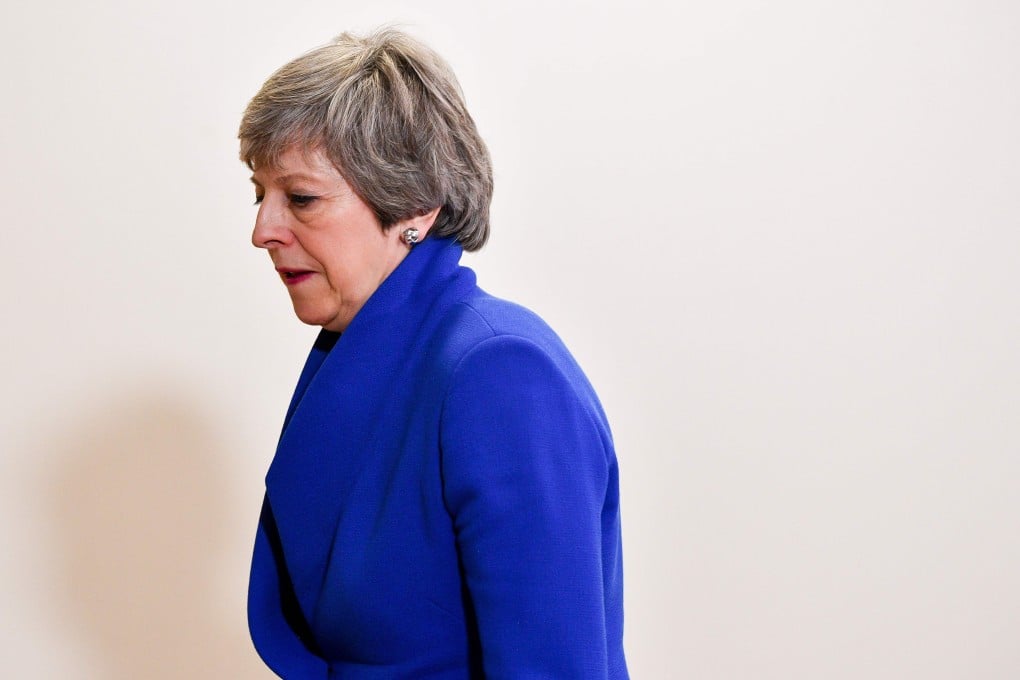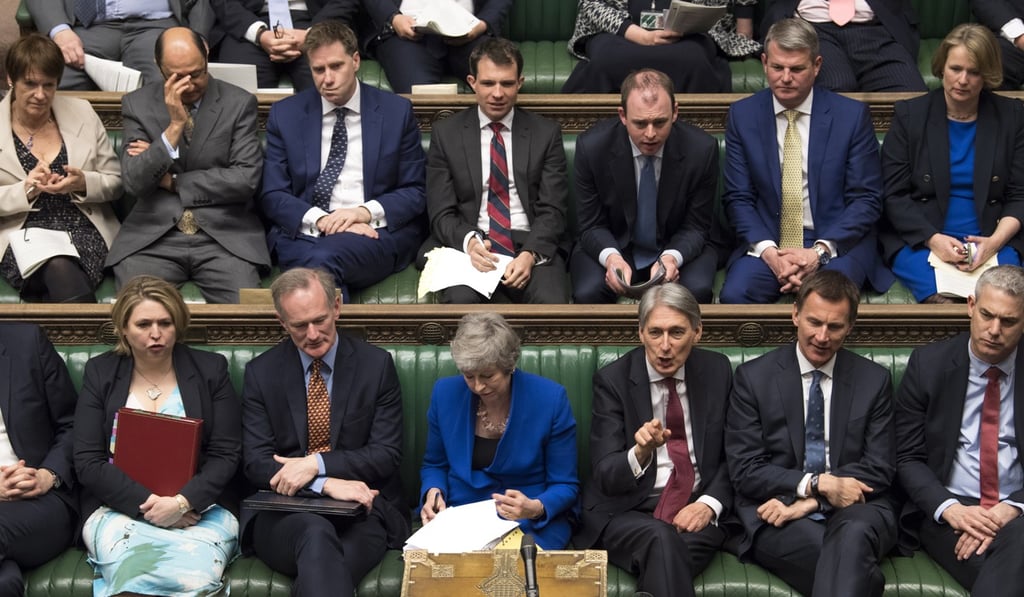A Brexit delay for Theresa May, but will she stay?
- Many of May’s Conservative MPs are livid that Britain is now likely to take part in European Parliament elections next month
- May has hinted she might voluntarily step down if she fails to get a Brexit deal through by June 30

May said last month she would step down once her EU divorce agreement was passed by the British parliament, an offer she hoped would persuade her Conservative critics to back the plan.
It failed and, faced with the prospect of a “no deal” exit on Friday, she has now agreed to delay Brexit, potentially until October 31.
Downing Street says she stands by her commitment to see through this stage of Britain’s exit, and some colleagues say she is going nowhere.
“I don’t think we should be rushing to change our leader when there is a big task to be done,” Justice Secretary David Gauke told the BBC ahead of the summit.

May herself told a Brussels press conference that she “sincerely regrets” the delay but “we must now press on at pace with our efforts to reach a consensus on a deal”.